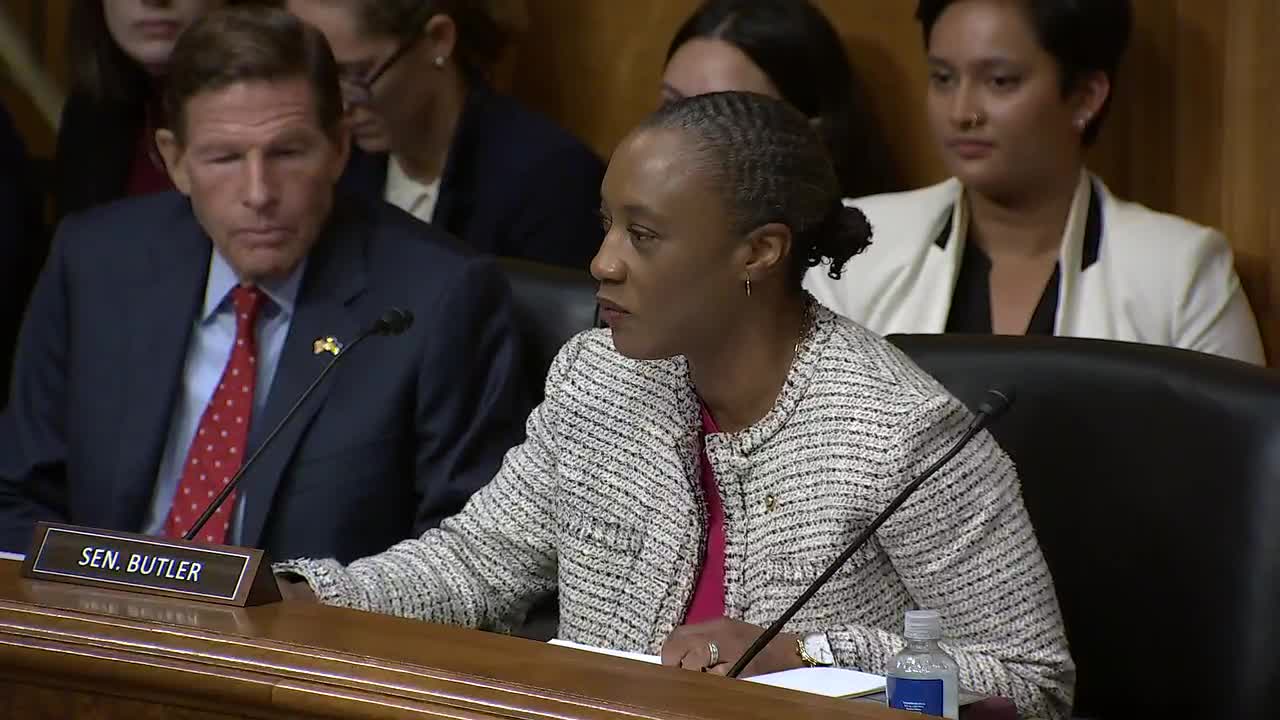Senate passes landmark bill to address lab leak risks
September 25, 2024 | Homeland Security and Governmental Affairs: Senate Committee, Standing Committees - House & Senate, Congressional Hearings Compilation
This article was created by AI summarizing key points discussed. AI makes mistakes, so for full details and context, please refer to the video of the full meeting. Please report any errors so we can fix them. Report an error »

In a recent government meeting, lawmakers discussed critical legislation aimed at enhancing community preparedness for climate-related disasters and addressing biosecurity risks.
Senator Butler highlighted that nearly 40% of Americans now reside in areas affected by climate change and natural disasters. He emphasized the importance of incentivizing the Federal Emergency Management Agency (FEMA) to support Community Emergency Response Teams (CERT) without incurring additional costs. The committee subsequently voted on S4900, which passed with a vote of 8-1, indicating strong bipartisan support for the initiative.
The meeting also addressed S 131, which was passed with a vote of 7-2. This legislation aims to further bolster community resilience and preparedness efforts.
Senator Paul brought attention to S 4667, which focuses on biosecurity in light of the COVID-19 pandemic. He expressed gratitude for the bipartisan efforts to create a compromise on the bill, noting the significant loss of life due to COVID-19 and the potential risks posed by laboratory leaks. Paul referenced historical instances of virus mutations and lab-related outbreaks, advocating for the legislation as a necessary step to mitigate future biohazard risks.
The discussions reflect a growing recognition among lawmakers of the urgent need to address both climate change impacts and biosecurity threats, with a commitment to enhancing community safety and preparedness.
Senator Butler highlighted that nearly 40% of Americans now reside in areas affected by climate change and natural disasters. He emphasized the importance of incentivizing the Federal Emergency Management Agency (FEMA) to support Community Emergency Response Teams (CERT) without incurring additional costs. The committee subsequently voted on S4900, which passed with a vote of 8-1, indicating strong bipartisan support for the initiative.
The meeting also addressed S 131, which was passed with a vote of 7-2. This legislation aims to further bolster community resilience and preparedness efforts.
Senator Paul brought attention to S 4667, which focuses on biosecurity in light of the COVID-19 pandemic. He expressed gratitude for the bipartisan efforts to create a compromise on the bill, noting the significant loss of life due to COVID-19 and the potential risks posed by laboratory leaks. Paul referenced historical instances of virus mutations and lab-related outbreaks, advocating for the legislation as a necessary step to mitigate future biohazard risks.
The discussions reflect a growing recognition among lawmakers of the urgent need to address both climate change impacts and biosecurity threats, with a commitment to enhancing community safety and preparedness.
View full meeting
This article is based on a recent meeting—watch the full video and explore the complete transcript for deeper insights into the discussion.
View full meeting